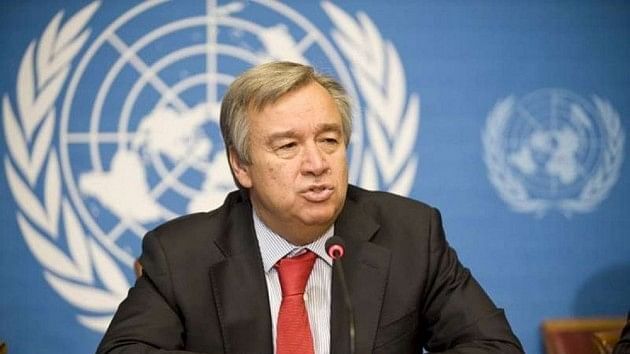Out of time

The one good thing that may come out of the pandemic and hopefully remain for good otherwise is the idea of a truly connected global community. Humanity as a whole is presently tackling a situation that would simply not be feasible or wise to tackle alone, as people and as nations. The pandemic has forced our nations and communities to rise beyond petty differences and priorities to urgently address the escalating crisis. As is stands now, humanity is close to pulling off a historically significant event undertaken on a never before seen scale and at an unprecedented pace. This sense of focused urgency that acknowledges greater priorities is exactly the need of the hour for addressing what can easily become the greatest crisis of our relatively short existence as a species — climate change.
It was early in the pandemic timeline when UN Secretary-General Antonio Guterres referred to the pandemic as a 'dress-rehearsal' of sorts to the approaching climate crisis. What he referred to was not only the scale of the disaster but also the scale of the response that would be required to tackle it. The pandemic exposed vital faults in many of our core societal systems ranging from our economies to how we produce and transport our food and other essentials. Climate change will unquestionably stress these systems to the limit. Take the example of our current systems of migration which are showing clear strains as migration patterns have picked up over time. A UN report released in 2019 regarding the future state of migration notes the possibility of more than 200 million people being forced to flee their homes by 2050 as a result of adverse climatic change. Many of these climate change refugees would likely be subject to other vulnerabilities as well, such as poverty, etc. This is one example of the wide-ranging ways in which climate change will tax human society and its negligence towards the cost of its own actions. Study after study shows that climate change has a significant and growing cost to our development efforts. Then why do nations refuse to treat the matter as urgently as any other that has the untold potential to displace and damage?
The simple idea is that it is hard to sell the urgency of climate change due to its nature as a long-term disaster. At the same time, there is a great deal of scepticism regarding the science of climate change. While most in the scientific community agree that climate change is real and dangerous, there are disagreements over what role humans play in this and whether climate change is worth panicking over. The idea that climate change is periodic and therefore out of human hands has been expressed by many sceptics. It must be noted, however, that there is reasonable consensus over the fact that while humans may not be solely driving climate change, they are responsible for speeding it up. We are already existing in a time when climate change is already visibly changing the nature and frequency of natural disasters across the world, a pattern that can only progress in the future.
It is in this case that Guterres has once again warned against the folly of humans 'waging a suicidal war' on nature. Nature, as Guterres puts it, "always strikes back". The UN Chief has announced that the central objective for the organisation next year will be to set up a global coalition for ensuring net-zero emissions in the coming years. Guterres recommendations include demands for putting up a carbon-price, phasing out fossil fuel subsidies, etc. In addition, he has called for the concept and practice of carbon neutrality to be adopted by every city and every organisation, whether public or private.
While climate change agendas are more instructive than obligatory, Guterres says there is simply no time to stand in scepticism. He was quoted by BBC as saying, "Unless the world cuts fossil fuel production by six per cent every year between now and 2030, things will get worse. Much worse." Guterres's larger appeal was for nations and humanity as a whole to finally acknowledge their role in preserving the planet, a role that does not end with just net-zero emissions but also ensuring that the staggering pattern of biodiversity loss is reversed. Regardless of our stance on climate change, our moment of reckoning approaches regardless. But there is still hope.



